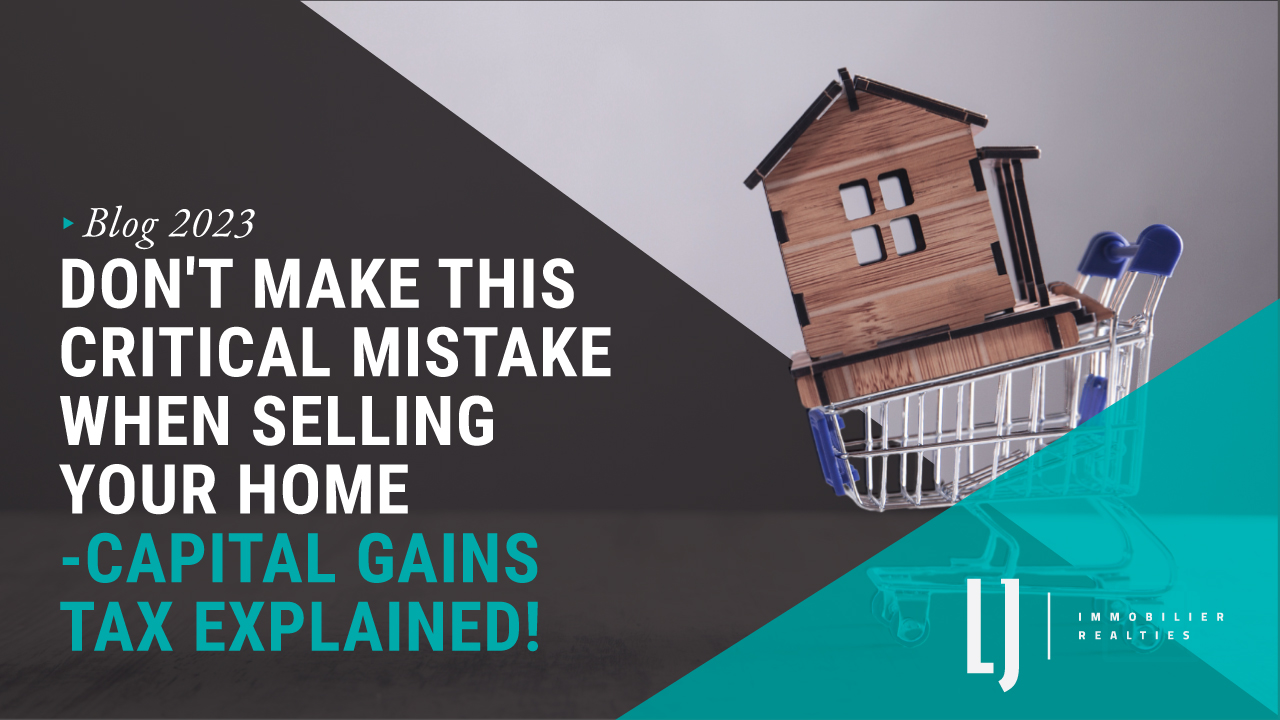
Here’s something that lots of people don’t think about when selling their property: capital gains tax. In this piece, we’ll be breaking down what this means, who might be exempt, and everything else you need to know so you can be financially prepared!
What is capital gains tax?
When you sell something for more than you initially paid, capital gains is the tax you pay on the profit you’ve made. The two most common situations where this tax is applied are investments and property sales.
The tax rate you pay will depend on your income and the amount of profit you’ll be making on your property. Generally, 50% of the profit you make is taxable, but that can vary depending on your situation. That being said, if the property you’re selling is your primary residence, you may be eligible for a tax exemption.
Who is exempt?
In Canada, the principal residence exemption – sometimes referred to as PRE – allows you to avoid paying capital gains tax on the sale of your primary residence.
To qualify for the PRE, you must have used the home as your primary residence and you must not have used the property to earn rental income or run a business. If you meet these requirements, you can claim the exemption on your tax return.
It’s important to note that the PRE can only be claimed for one property per family per year. Also, if you are not eligible, you may still be able to claim a portion of the capital gains exemption. This partial exemption, which is available to anyone, allows you to reduce the amount of capital gains tax you have to pay on the sale of your home.
In sum…
Capital gains tax is a line item to keep in mind when selling your home, but if you meet the requirements for the PRE, you may not have to pay any tax at all.
Wondering what else you should be thinking about when it’s time to sell your home? Ask us anything!





